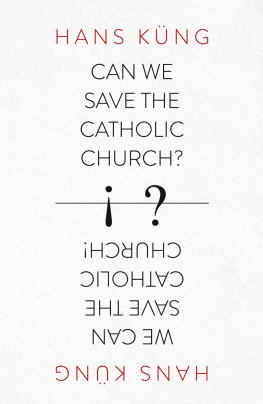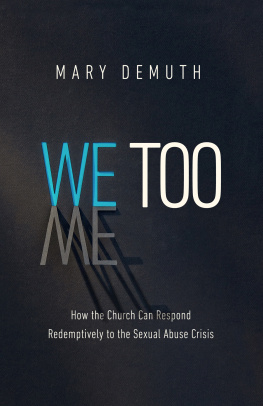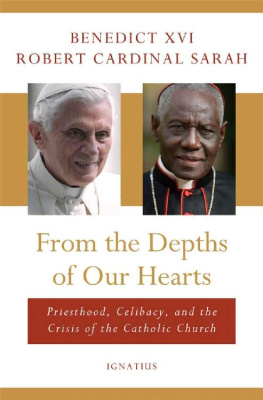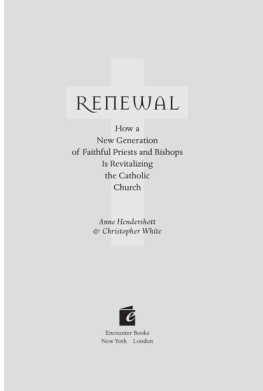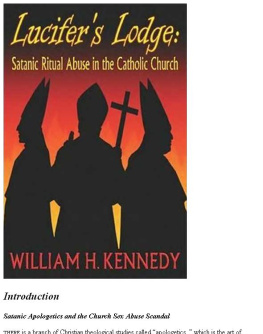AN ENGLISH SPRING
AN ENGLISH SPRING
Memoirs
CORMAC MURPHY-OCONNOR
CONTENTS
First plate section
Second plate section
).
).
).
).
).
).
).
).
).
When I was installed as Archbishop of Westminster on 22 March 2000 I mentioned a stone I had come across on a small island in the Outer Hebrides. On it was inscribed, Pilgrim Cormac , and, below, were the words, He went beyond what was deemed possible . There were ripples of amusement among the congregation inside the cathedral. As I reminded them, before my appointment the bookmakers had me listed as a 25-to-1 outsider.
Now that I have been in retirement for a number of years, there has been a certain pressure on me to write an account of my life. This has not only come from others, but from my inner self. I am the only Archbishop of Westminster to have retired; all of my nine predecessors died in office. With the exception of the great Cardinal Manning, who lived until he was 86 years old, they all died before they reached the age of 80. The only one of my predecessors who attempted an autobiography was Cardinal John Carmel Heenan. He completed two volumes, but the record of his personal story ceased at the point he became Archbishop of Westminster. I am the only one to have had a little time to reflect back on my life and to try to put into perspective some of the things that have touched me during my life as priest, bishop and cardinal.
I suppose the most difficult thing about writing an account of ones life is to express something of the inner me, the real Cormac. It is easy enough to set down the various events that have occurred during ones life, but to try to put into words the emotions that underpinned them is more difficult. It is harder still to talk honestly about the sorrows and conflicts we have faced, the hurts we have caused, the mistakes we have made. Many of my experiences are common to the life of every priest. How have I tried to relate my faith to my life? How have I tried to live as a human being, with all its inevitable successes and failures, aspirations and hopes? How have I been able to give and receive love and affection, without which life would be unbearable?
I had the great blessing of being brought up in a secure and loving family. I had an uncle who was a priest and who used often to give a little speech at family gatherings in which he would quote the words of Isaiah: Remember the rock out of which you were hewn. By rock he meant the rock of family and the rock of faith. Certainly, to be brought up as I was in a large and loving family has been the foundation of my life. This is why I have always been deeply concerned about family life and its stability. There is plenty of research to support the belief not only that marriage provides the greatest possibility of stability for children, but that the love and commitment of a happy marriage is itself the best foundation upon which children can build lasting relationships in their own lives. All this I learnt not only from the experience of my own family, but from my participation and the part I have played in so many marriages, through good times and bad.
Faith has been my other rock. The Catholic Church has always been the centre of my life. When Jesus left us to return to his Father he promised that he would not leave us orphans, he would come back to us, and therefore he has left us his Holy Spirit and his Church. I have always understood that since Jesus came to live among us, we are no longer alone, that the world is no longer without a heart. It is the Holy Spirit who enables us to confront the trials of the world and to be a disciple of the gospel of Jesus Christ. The Church, as Hugo Rahner (brother of Karl) said, is the Mary of the history of the world. So the Church has always been my heart and my home. It has brought order to my life, a sense of beauty, and a sense of belonging to a living tradition that has been handed down through the centuries. I understand better than most the weakness of the Church and, of course, I know only too well the sinfulness, sometimes grave, of its members, yet it has always been and remains the centre of my faith and my prayer.
The Church I was brought up in was in a way a kind of fortress. In the picture we were given, there was One Church in which was brought forth the fullness of truth and life. This was found in the prayer of the faithful, in the sacraments and in the unity and strength that came from belonging to a universal Church. There were few signs of what you might call an ecumenical spirit, nor was there a real opening to the riches of the Bible or a fruitful appreciation of the Churchs mission to be a sign and servant of the modern world.
When I was studying for the priesthood, my teachers spoke of the Councils of the Church and of the truths of the revelation of Jesus Christ, but they seemed to concentrate more on prohibitions, on dire warnings, sinful practices and false teaching. Then came Pope John XXIII and his bravery and trust in God in calling the second Vatican Council, which dramatically changed the face of the Catholic Church. No longer a closed fortress, it was now encouraged to be open to fellow Christians, to people of other religions and to the modern world. We were invited to become a Church that saw herself first of all as the pilgrim People of God, and every one of us, lay person, priest or religious, was called, to holiness.
At the end of the Council I was fortunate to work closely with the newly ordained bishop, Derek Worlock, who was enthusiastic to communicate the insights of the Council in every possible way. Lay people were encouraged to play their part fully in the life of the Church. There was the beginning of a real openness and friendship with fellow Christians. And we began to understand the Church, not so much as above the world, as the city on the hill, but within the world, as the leaven in the mass. In the years that followed I became the rector of a seminary in Rome and I had to learn how to form future priests not an easy task in the new circumstances in which they would have to live. And then for many years I was a bishop, twenty-three of them in the diocese of Arundel and Brighton and nine in the archdiocese of Westminster.
Although I recall the events of my life, and, especially, the people I have met and the challenges I have faced, my account is coloured by my vision of the Church and its mission in todays world and by my understanding of the way the Church has developed, especially in England and Wales, during the past forty years. So this is more than just one mans life story. It is also a personal reflection on the way in which the Holy Spirit has guided the Church during the past fifty years. It is a story of one mans pilgrimage as priest, bishop and servant of Gods Church, a story of faith and life, and a story of the Church in the world.
Cardinal Heenan called the first volume of his autobiography Not the Whole Truth , because, of course, it couldnt be. Many of the people he wrote about were still alive, and charity or prudence made full disclosure impossible. This memoir is not the whole truth either, though I have tried to be as open and honest as I can be. I hope you will forgive me for the informality of Christian names or short forms; Basil and Derek and so on is how I knew them, and it would seem artificial in a personal memoir to set out their full title at every mention. And I hope historians will forgive me for not trying to recount the details of every appointment, dispute or difficult decision. This is not intended to be a scholarly account of my time as a bishop and archbishop, but a personal record of some of the more interesting or significant personalities, events and ideas that have shaped my life. As Voltaire said, If you want to bore the reader, tell him everything.

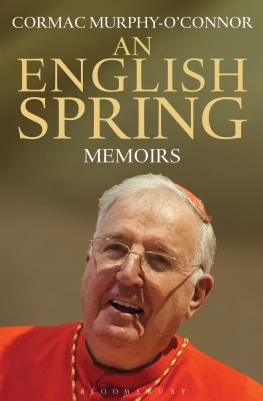
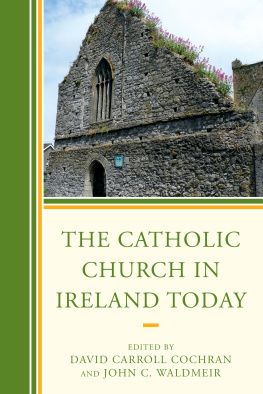
![Blessed John Henry Newman - Blessed John Henry Newman Collection [26 Books]](/uploads/posts/book/371011/thumbs/blessed-john-henry-newman-blessed-john-henry.jpg)

